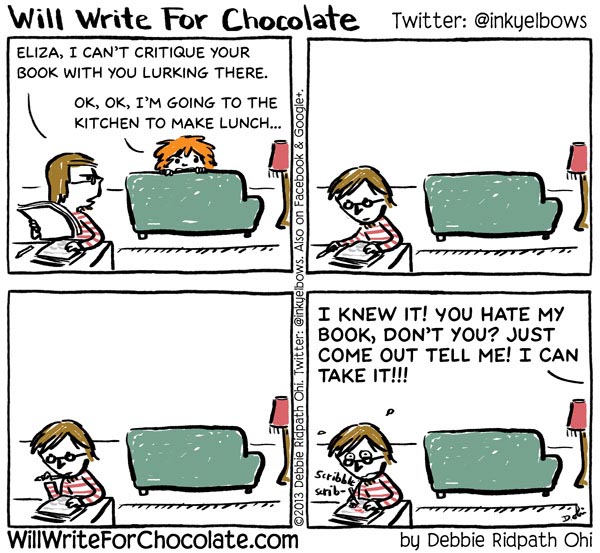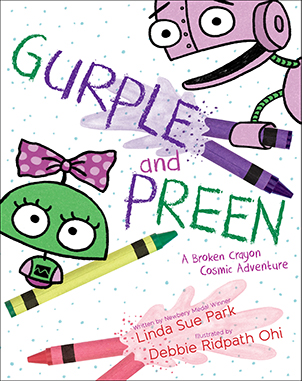Writers and illustrators: Learning to accept criticism is a key to getting published

Advice for those who are trying to get published or who want a longterm career in the publishing industry: you need to develop a thick hide when it comes to criticism.
No matter what stage you are in your career, if you are putting yourself and your work out there for people to see (whether it's agents or editors or art directors or reviewers or other readers), you WILL get criticism. It might be criticism in the form of critiques from a trusted group of writer or illustrator friends. It might be a form rejection letter or detailed rejection letter. Even after you get a contract, you will be getting feedback and change requests from your editor or art director. After your book comes out, some people will not like your book -- and some of those people may be reviewers.
If you are sensitive to harsh judgement, you need to find a way to cope with this early on if you want to stay in the game. Just don't do it in public!
For critiques of your work, never make changes right away. This is especially important for those who are insecure about their own skills! Let the feedback sit for at least a day or two (longer if you can wait), THEN come back to it with more objectivity. Do you agree with the feedback? Don't blindly make a change to your manuscript if you don't agree or understand why.
And never, ever respond to negative reviews in public.
Some useful resources:
Gail Carson Levine has great advice about how to take criticism, particularly from a critique.
11 Writers On How They Deal With Criticism - by Jason Diamond.
6 Top Tips For Dealing With Criticism Of Your Writing - from WritersEdit. This piece advises AGAINST reading all (if any) of your reviews in Goodreads and other places geared toward readers; I've heard this piece of advice from a prominent author in her workshop as well.
Deal With Criticism Like A Pro - by Bryan Collins on WritetoDone. This advice is mainly geared toward negative feedback from an editor; Bryan is a nonfiction freelance writer.












 Saturday, January 11, 2020 at 7:54 AM
Saturday, January 11, 2020 at 7:54 AM
Reader Comments